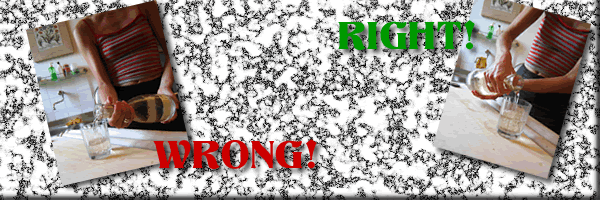In examining Cagliese traditions, it becomes apparent that many of them have very deep roots. Several seem to rise from rules about salt.
 Here's the way Guiseppe Paleani, a retired taxi driver, overcomes "the bad tongue." He said that when he is at home sitting by the fire and the logs begin to crackle and make hissing noises, it means that someone has been speaking badly about him. To make the gossip stop, he said, he must throw salt on the fire. Here's the way Guiseppe Paleani, a retired taxi driver, overcomes "the bad tongue." He said that when he is at home sitting by the fire and the logs begin to crackle and make hissing noises, it means that someone has been speaking badly about him. To make the gossip stop, he said, he must throw salt on the fire.
And salt is good for luck outside the home, too. Paleani added that when Italian goalkeepers are preparing for a big soccer game, they line the goal with salt to keep the ball out of the net.
Although Pieretti her husband said he doesn't believe in superstitions, he said his wife is one of the most superstitious people he knows. "She is so superstitious I sometimes feel like throwing her out the window," he said playfully. When Pieretti's wife sees people spill salt, she runs to them and asks them to throw it over their left shoulder.
The appearance of salt in so many Cagliese traditions may date back to the days when salt was an expensive commodity, not just in Italy but throughout Europe. High taxes placed on salt to fund warfare made salt virtually impossible to afford. It was only used if absolutely needed, such as for preserving meat and fish. Italians learned to make bread without salt, and many towns in the Marche region continue this tradition.
Although superstitions like these have survived for hundred of years, some Cagliesi express concern about the fading of tradition.
"Cagli is not a city; it is a town," Pieretti said proudly . "Many of the people who live here have families that have been here for over 100 years." But even with this stability, Pieretti said that he thinks many of these informal customs and behaviors are fading away. "Because of technology like television and computers, superstitions and traditions are becoming less common. Also, religion is not as important as it used to be," he said.
Although Pieretti and other Cagliesi said they worry that the younger generations of Cagli are changing, there is reason to think that the age-old superstitions and traditions of this town will not disappear any time soon. It was a 20-year-old man who warned against pouring wine the improper way, and judging by the way he and his company felt so strongly about this superstition, the collapse of tradition does not seem imminent |


